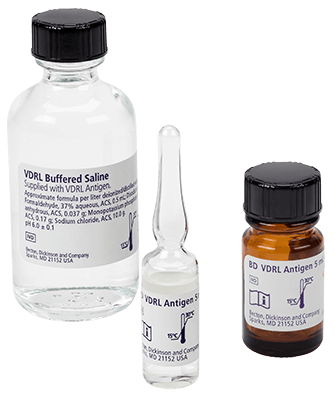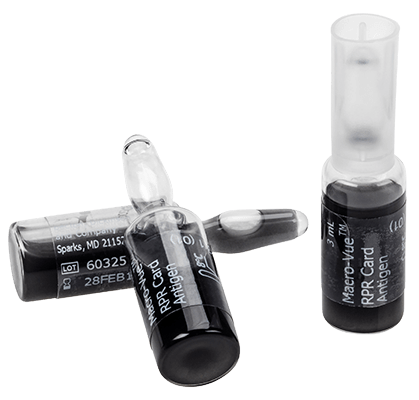BD offers several options for syphilis testing: direct immunofluorescent reagents, fluorescent treponemal antibody absorption (FTA-ABS) test reagents, RPR and VDRL antigen.



- Overview
- Products & Accessories
- EIFU & Resources
Venereal Disease Research Laboratory (VDRL) syphilis serology reagents are used in qualitative and quantitative determination of syphilis. The VDRL test is based on flocculation, which is the visible reaction of combining reagin (an antibody-like protein) in patient serum with the antigen (a mixture of cardiolipin, cholesterol and lecithin).
These reagents are used in the FTA-ABS test. The FTA-ABS test utilises test serum that has been absorbed with a Reiter treponeme suspension to remove nonspecific antibodies. This absorbed serum, if it contains antibodies to T. pallidium, reacts with the T. pallidium antigen on a slide, and the resulting antigen-antibody complex is available to react with fluorescein-tagged antihuman globulin. The antigen-antibody reaction is visualised by green fluorescence under UV light.
These reagents are used for the direct immunofluorescent identification of T. pallidium. The direct immunofluorescent test uses the fluoroscein-labeled anti-T. pallidium antibody to directly stain smears prepared from fluid specimens. If the specimen smear contains T. pallidium antigen, a fluorescent complex is visible under UV light.
BD Macro-Vue RPR 18-mm circle card tests and teardrop tests are nontreponemal testing procedures designed for the serological detection of syphilis.